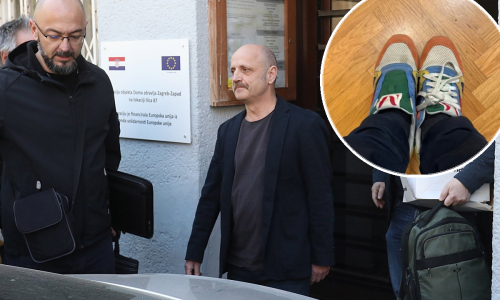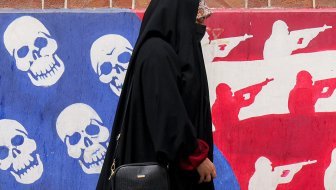A wartime Croatian assistant minister of the interior, Tomislav Mercep, who was arrested in Zagreb on Friday morning, is suspected of war crimes against civilians committed in the area of Zagreb and in Pakracka Poljana from October to mid-December 1991, officials at the Croatian Ministry of the Interior said on Friday.
Without revealing the suspect's identity, the Ministry said in a statement that an investigation was launched today into a 58-year-old Croatian national on the suspicion that he committed war crimes against civilians.
The investigation is being conducted in cooperation with the State Attorney's Office (DORH) after "a number of years during which information was collected," the Ministry said, announcing more information after the investigation.
DORH officials would not comment on the proceedings against Mercep, a former local secretary for defence in Vukovar and assistant minister of the interior who at the beginning of the 1990s war in Croatia commanded a unit of reservists of the Ministry of the Interior.
Mercep is charged according to a previous penal code which envisaged a prison sentence of five to 20 years in prison for war crimes against civilians.
The Pakracka Poljana case was first mentioned in 1992, after police obtained information on crimes allegedly committed by members of Mercep's unit during an investigation into the murder of the Zec family from Zagreb. The case was not investigated until September 1997, when Miroslav Bajramovic told the Feral Tribune weekly that 280 people had been killed at Pakracka Poljana and that he had personally killed 72 of them. That same year, the first indictment in the case was issued.
In mid-1999, Munib Suljic, Igor Mikola, Sinisa Rimac and Zoran Karlovic were acquitted pending appeal for the murder of an unidentified man called Sasa, and Branko Saric and Miroslav Bajramovic were sentenced for the unlawful detention and extortion of three Zagreb Serbs - Milos Ivosevic, Rade Pajic, and Marko Grujic, whose bodies were found at Pakracka Poljana. The people who killed the three men remain unknown.
The Supreme Court in 2001 quashed the verdict and ordered a retrial, this time without Karlovic.
Four years later, all the five men were found guilty. Suljic and Mikola did not attend the sentencing, having previously escaped.
The case was completed in May 2006 when the Supreme Court increased Suljic's sentence from 10 to 12 years, and quashed Mikola's verdict and ordered a retrial for extortion, upholding his four-year sentence for aiding and abetting in murder. The court also upheld Rimac's sentence of eight years in prison, Bajramovic's sentence of four years in prison and Saric's sentence of three years in prison.
A month later, the Netherlands extradited Suljic, who in August 2006 died in a prison hospital in Zagreb. Mikola remains on the run.
The Hague war crimes tribunal, too, was interested in Mercep's role in the war and in February 2006 it sent DORH raw documents regarding war crimes committed in eastern Slavonia and at Pakracka Poljana in the second half of 1991 which the tribunal's prosecutors had been gathering for years.
Mercep dismissed the allegations as nonsense.
The US Central Intelligence Agency, too, was interested in Mercep, publishing on its web site in late 2006 a report from October 1995 detailing Mercep's role in crimes against Serbs at Pakracka Poljana as well as in Gospic, Vukovar and Zagreb.
The ten-page document described Mercep as a Croatian parliamentarian and former paramilitary commander who was widely believed, even in Croatian government circles, to be directly responsible for grave violations of human rights and other illegal acts committed during 1991.
Mercep was also mentioned in an Amnesty International report on Wednesday in the context of command responsibility for a number of unspecified crimes.
Mercep was one of the nine candidates in the 2000 presidential elections.




































